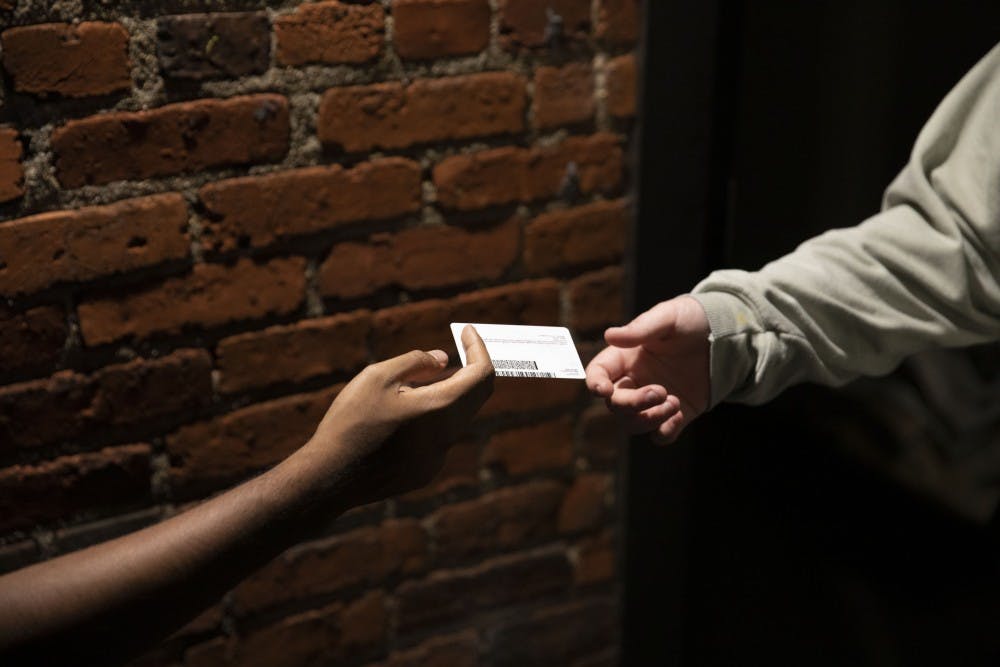Officer Kevin Kuhn, a CHPD alcohol law enforcement investigator, said BARS training teaches businesses how to conduct thorough ID checks, including verifying that IDs are not expired and the photo matches the person presenting the ID.
“I think we really have to get in the mindset of when we’re checking ID, our goal is not to get the customer checked out,” he said. “The goal is to do a good ID check.”
Businesses risk losing their liquor license if they are repeatedly caught serving underage people alcohol.
Bret Oliverio, the owner of Sup Dogs, said his restaurant checks the IDs of every person looking to consume alcohol. He said employees do their best to thoroughly check IDs, and he has noticed out-of-state IDs are often fake.
“I think UNC students are really invested in their education, and they don’t want to put anything at risk trying to buy a beer underage, so I would say we see way less fake IDs now than we did when we opened six years ago,” he said.
Oliverio said the increase in the quality of fake IDs is an obstacle to enforcement.
Justin Cole, the manager of Linda’s Bar and Grill, said BARS training and experience as a bartender has helped him improve at identifying fake IDs. Cole also said employees are strict about watching, warning and confiscating alcohol from groups of customers who may be sharing drinks with underage members.
“Everyone’s welcome here, and you don’t have to be 21 to hang out,” he said. “We don’t serve alcohol to people that are underage, but we’ll still serve you and you’re still welcome to come back, and part of the idea behind that is that we want them to come back and have a drink with us when they are of age.”
CHPD, the Carrboro Police Department and the UNC Police Department run compliance checks periodically. Under this initiative, underage people who are screened prior via public polls as looking underage are sent into local bars and restaurants to attempt to purchase alcohol. If asked to present ID, they present their real underage ID, and if the business accepts it, they fail.
Landess said the pass rate in these checks has increased over the five years that the Campus and Community Coalition has been in operation, but 9 percent of establishments still fail.
Oliverio and Cole both said their workplaces have undergone and passed multiple compliance checks.
Bachenheimer expressed concerns that, because compliance checks have led many businesses to strengthen their enforcement of underage drinking, they might also have driven more students to drink at off-campus locations that don’t require identification, such as fraternities, sororities and off-campus student housing.
To get the day's news and headlines in your inbox each morning, sign up for our email newsletters.
Kuhn said bars and restaurants are taught they can seize fake IDs, but are not required to, and should prioritize the safety of patrons and staff. He said CHPD routinely receives bags full of confiscated fake IDs from restaurants and bars but uses these IDs for teaching purposes, or destroys them, rather than tracking down the underage people who presented them.
Israel Morrow, special agent in charge of the Alcohol Law Enforcement Branch, said he instructs establishments to contact law enforcement if they confiscate a fake ID. After receiving these IDs, he follows up and tries to identify the individual to charge them criminally, he said.
Kuhn and Morrow said CHPD and ALE don’t report alcohol citations to UNC. Desmond Frierson, Orange County’s misdemeanor diversion coordinator, said in an email that the Office of Student Conduct and UNC Student Affairs monitor local police bulletins. When alleged offenders are identified through this process, the University can take disciplinary action.
Underage people who receive alcohol citations in North Carolina could be eligible for deferred prosecutions. They may have to pay a fine and complete community service hours, but the charges will be dismissed from their criminal record.
Oliverio said enforcement is a reality of being a bar in a college town.
"Obviously when the majority of customers are college students, you are going to have people that are trying to drink underage, but we always do our job and ID 100 percent of people," he said.
@SLesnewski
city@dailytarheel.com




